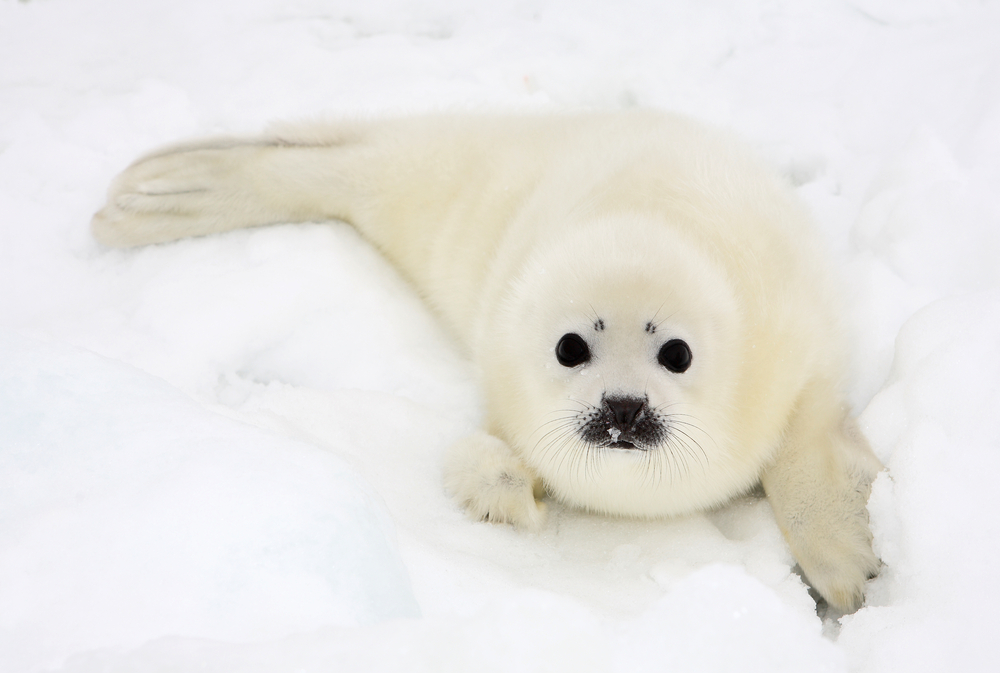ShutterstockA harp seal pup.
Shrinking sea ice is bad news for the baby harp seal, according to researchers from Duke University in the U.S. Pagophilus groenlandicus relies on stable winter sea ice to provide a safe platform to give birth and nurse the young until the pups can swim, hunt, and fend off predators.
But the Duke team report in PLoS One, the Public Library of Science journal, that in four harp seal breeding regions of the North Atlantic, winter ice had declined by 6 percent a decade since 1979.
The researchers based the conclusion on satellite images of ice cover, yearly reports of seal strandings along the U.S. Northeast coast, and DNA studies of the stranded population. They say that although adult seals seemed to survive the decline in sea ice cover, the young were increasingly at risk.
Aqqa Rosing-AsvidAdult harp seal.
It wasn’t the weaker or the genetically inferior seals in the population that were most at risk: The hazard for the seal babies seemed to be across the board.
If they couldn’t be protec... Read more
